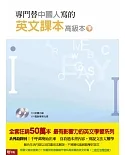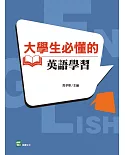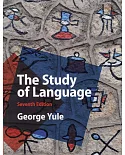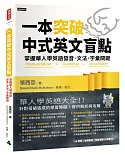Forewords
Congratulations on the publication of New Approaches to English Language and Education in Taiwan: Cultural and Intercultural Perspectives, which will bring new insights into the teaching and
learning of English in Taiwan.
For decades, teachers of young learners of English have had trouble coping with the challenges of developing English communication skills in their pupils, despite the students having spent
long years of learning. Regardless, English is regarded as one of the crucial subjects for academic advancement in schools of all levels. It is also a major tool on which all members of the
business community rely for networking with their counterparts worldwide. English language skills are regarded as indispensable in all walks of life.
This widespread consensus is common not only in Taiwan, but also all over the world today. It is for this reason that the cover story of the Nov. 15, 1982issue of Newsweek was titled
“English, English Everywhere”, and comments: “Today, like it or curse it, English has become the closest thing to a lingua franca around the globe.”
The global influence of English today was the subject of another cover story of Newsweek on March 7, 2005, entitled “Who Owns English?” The essay asserted that “English is the language of
business, technology, and increasingly empowerment”. In consideration of the role that the English language plays in the contemporary world, the Ministry of Education of Taiwan has been
actively promoting quality English teaching and learning so as to develop talents of all kinds, aiming at enhancing Taiwan’s international competitiveness in the long run.
Despite the universal desire to learn English, the efficacy of English language teaching in Taiwan has been an issue. Although students have typically devoted six to ten years to the study of
English, their fundamental communication skills are far from acceptable, if we look at the results of standardized tests such as TOEIC, TOEFL iBT, IELTS, and others. So often the policy makers
in English language education fail to appreciate the fact that its takes diverse measures to ensure the outcome of teaching and learning, the promotion of which requires activated motivation,
interactive communication between teachers and students, and approaches based on achievement-driven and task-based practices. And above all, creative and challenging programs of teacher
training for ensuring sound and practical pedagogies are essential.
Against the backdrop of the aforementioned issues, the publication of New Approaches to English Language and Education in Taiwan: Cultural and Intercultural Perspectives has addressed the key
problems of English teaching and learning in Taiwan. With papers representing cutting-edge research in the four areas of “language education and identity”, “transition and continuity of
learning between different levels of schools”, “learning and learners”, and “teachers and teaching”, all the stakeholders of English teaching and learning, namely, policy makers, English
language teachers, and students of English, will be able to convert their liabilities into assets.
Echoing Professor Wen-Chuan Lin’s (2016) observation that EFL learning is viewed as one of the keys to success in Taiwan’s economic globalization and modernization, the publication of New
Approaches to English Language and Education in Taiwan: Cultural and Intercultural Perspectives should be able to empower English language teachers and learners and help them arrive at this
goal.
Chen-ching Li, Ph.D.
Professor Emeritus
Department of English
Shih Hsin University
Forewords
Recognizing the importance of English in the globalized world, the ROC (Taiwan) government has spared no effort in promoting the teaching and learning of the lingua franca of the
21stcentury—in order to ensure Taiwan’s competitiveness in the world arena. Despite large investments—both public and private—on English education, it is nonetheless evident that over the
years, the general public is not totally satisfied with the outcomes of Taiwan’s English education. This dissatisfaction is a natural result of a number of interlocking factors: exam-oriented
instruction, lack of qualified teachers at the primary level, students with differing proficiency levels in the same classroom, insufficient language input and hours of weekly instruction, low
motivation and widening gap of English language proficiency, not to mention those poorly constructed English tests that tend to frustrate rather than promote learning.
In recent years, numerous research projects have been conducted in search for feasible solutions to the foregoing problems. The appearance of New Approaches to English Language and Education
in Taiwan: Cultural and Intercultural Perspectives is particularly welcome as it aims to provide its readers with new perspectives on the thorny issue regarding the (in)effectiveness of
Taiwan’s English Language Teaching (ELT). New Approaches contains 12 chapters, divided into four parts, each focusing on an issue of significance to English language and education in Taiwan.
The authors are all experienced English teachers and researchers, and their research deals with a wide variety of topics at different stages of English teaching and learning in Taiwan. This
book thus offers its readers a comprehensive view of the status quo of Taiwan’s ELT as well as the challenges that await sound solutions. A further benefit for the readers is the research
methodology each author shares at the end of each chapter, which is of great importance as teachers today are encouraged to do action research to grow professionally. Finally, New Approaches is
unique in that 8 of its authors were graduates of Durham University, the UK, and their doctoral theses were supervised by Professor Michael Byram, a renowned scholar and researcher on bilingual
education, comparative education, and foreign language teaching. New Approaches is thus significant in that it marks an inseparable bond between a distinguished and devoted teacher and his
students here in Taiwan!
Vincent Wuchang Chang
Taipei, Taiwan





















